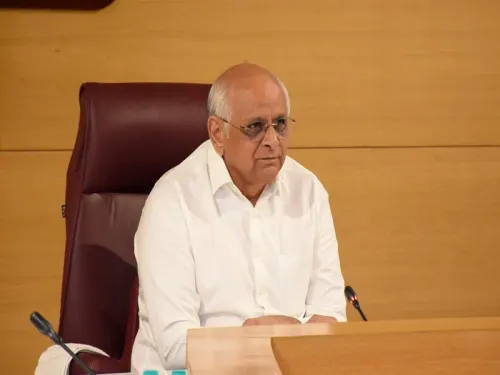How are ASHA sisters the first ray of health in remote villages?

Synopsis
Key Takeaways
- ASHA workers are vital frontline health providers.
- They demonstrate unwavering commitment during crises.
- Their efforts significantly improve health outcomes in remote villages.
- Community support is essential for their effectiveness.
- Government initiatives enhance their capabilities.
Jaipur, May 19 (NationPress) Lok Sabha Speaker Om Birla praised ASHA workers as the most essential support of the nation’s health infrastructure, emphasizing that in challenging times, while many withdraw, ASHA sisters step up with steadfast dedication and altruistic service.
At an event hosted by the Promising Indian Society in partnership with GAIL (Gas Authority of India Limited) at the UIT Auditorium, Birla acknowledged that the reach of critical health services to the most isolated villages of India is largely due to these frontline health champions.
“They relentlessly labor, day and night, for every pregnant woman, newborn, and individual in need,” he stated.
Reflecting on the COVID-19 pandemic, Birla underscored the commitment of ASHA sisters who, despite the dangers, ventured from door to door to identify the ill, distribute medications, and link individuals to medical assistance, even when many hesitated to go outside.
He asserted that their role is crucial in fostering a healthier, more self-sufficient, and respectful future generation.
Birla portrayed ASHA workers as symbols of empathy, confidence, and commitment. He noted that this gathering was more than a formal event; it represented a shared determination that every citizen in the Kota-Bundi parliamentary constituency deserves good health, every expectant mother and child should be secure, and even the most marginalized should live with dignity.
Recognizing their vital contribution to the Suposhit Maa Abhiyan, Birla commended the commitment of ASHA sisters in reaching the most underserved sectors of society.
He encouraged them to identify pregnant women who lack proper nutrition or healthcare so they can receive appropriate support.
Referring to the recently launched Pradhan Mantri Divyasha Kendra in Kota, Birla announced that essential assistive devices will now be provided directly to the homes of Divyangjans (persons with disabilities).
He urged ASHA workers to help identify such individuals in their communities and notify MBS Hospital or the Lok Sabha office to ensure timely help.









